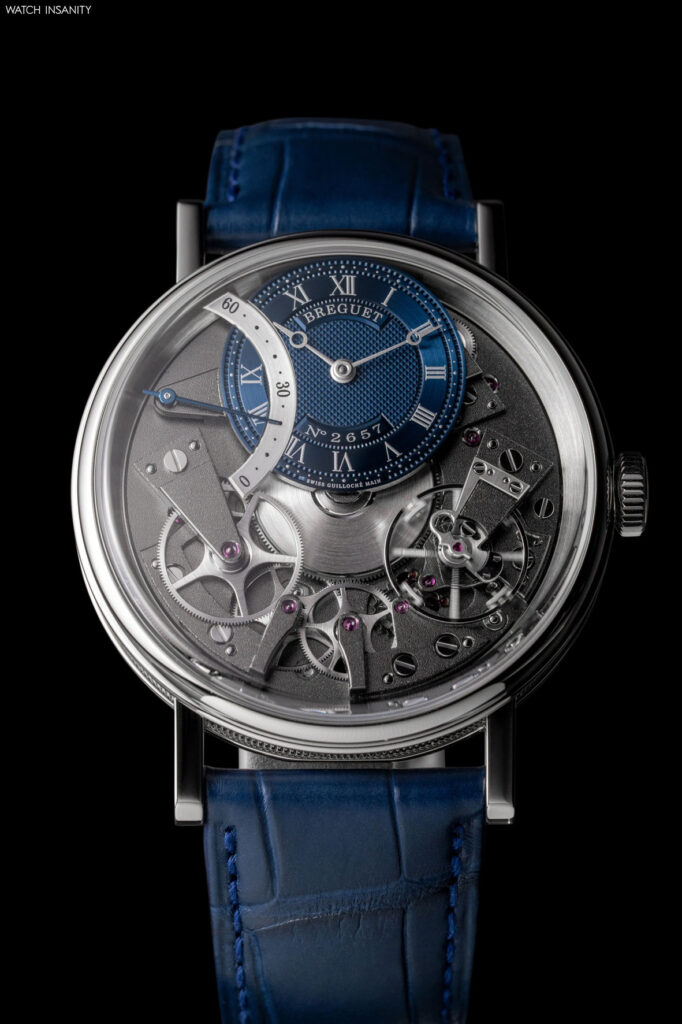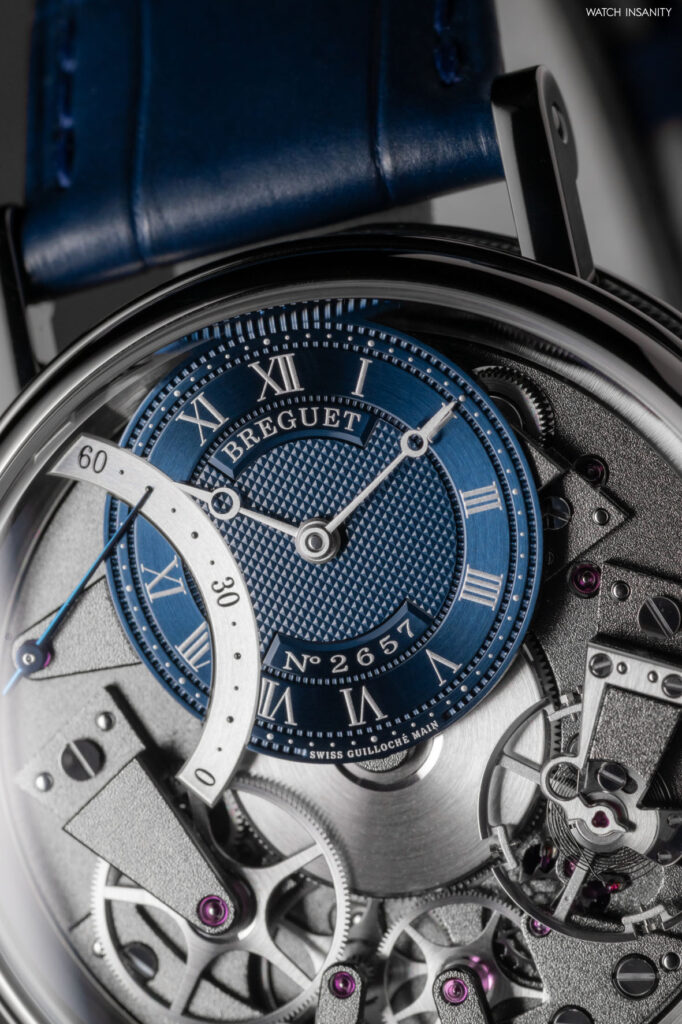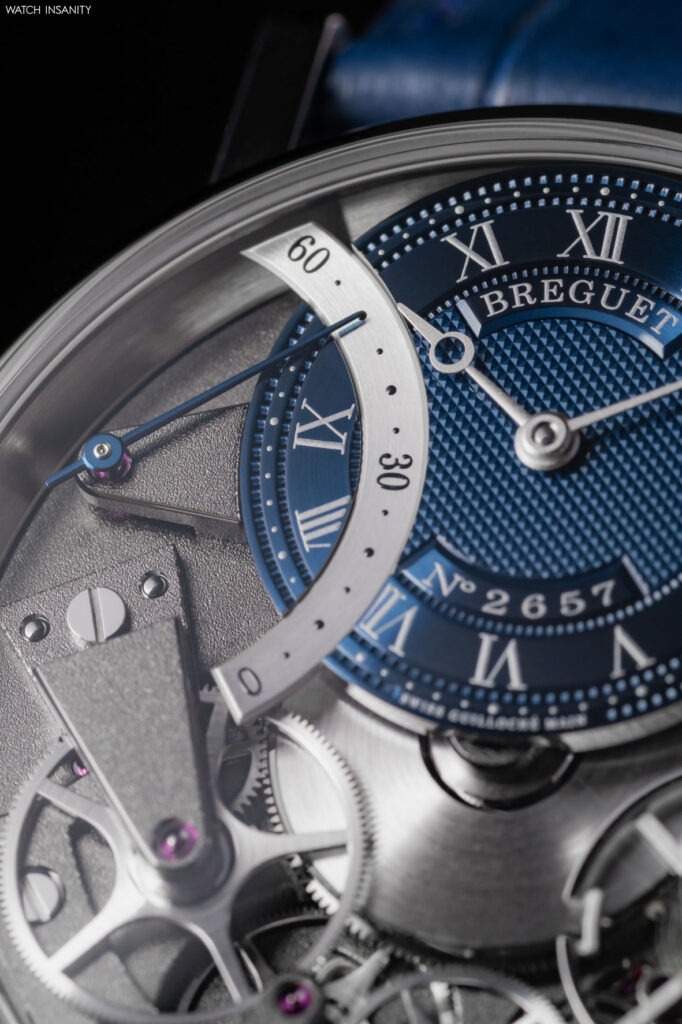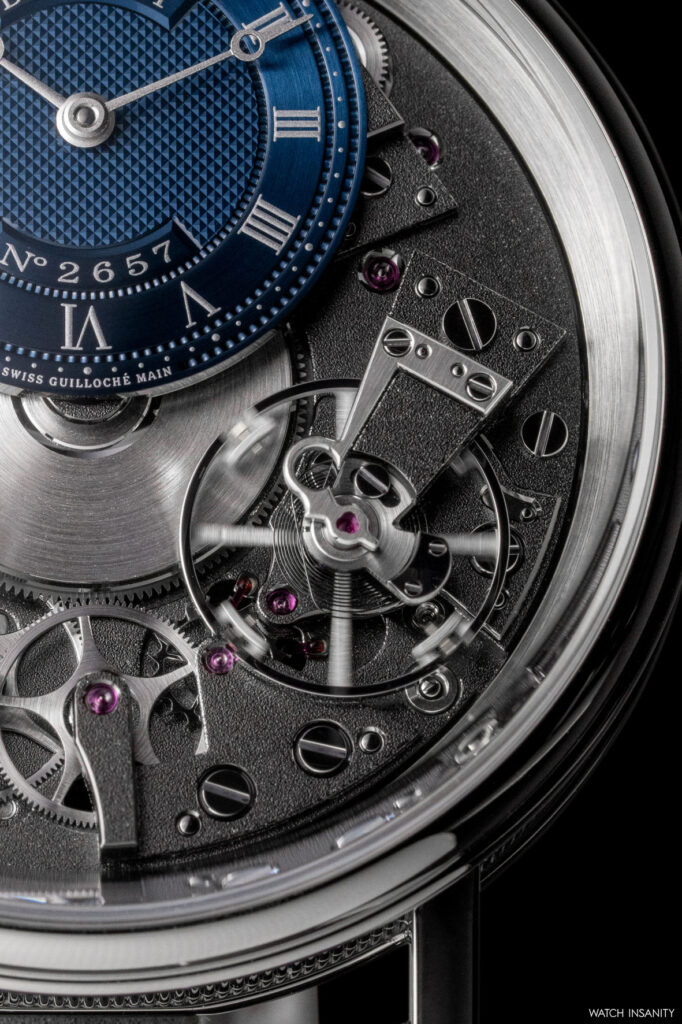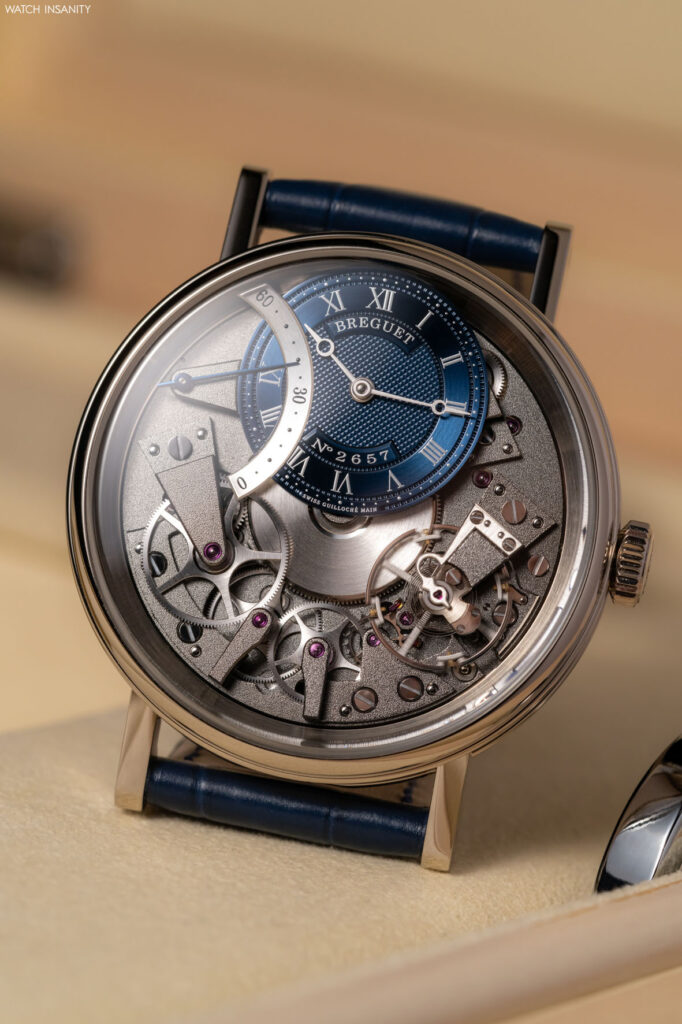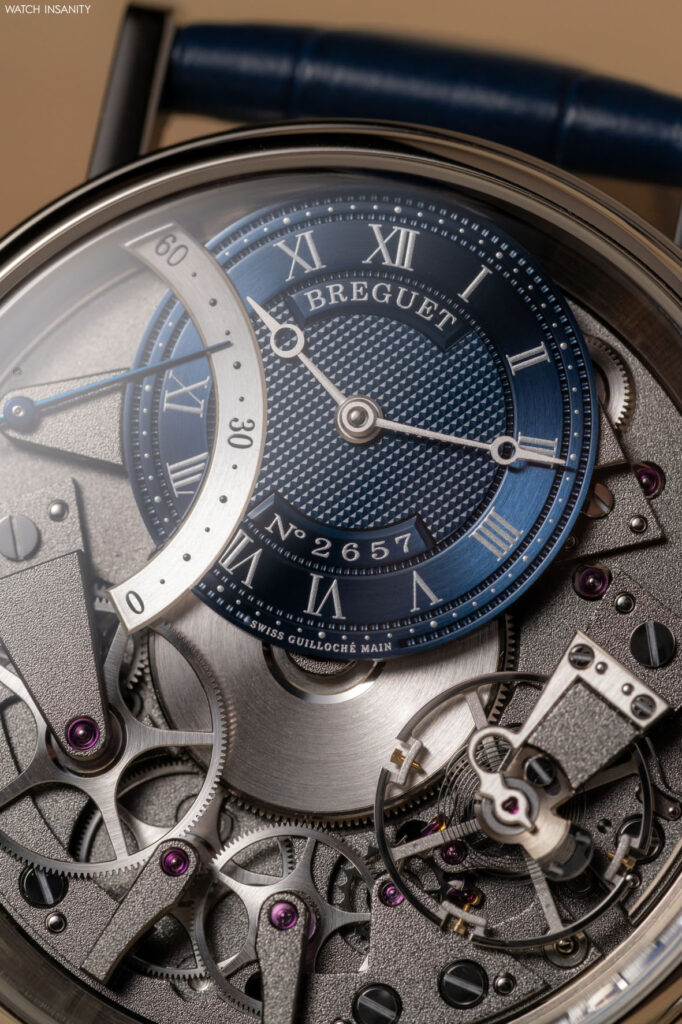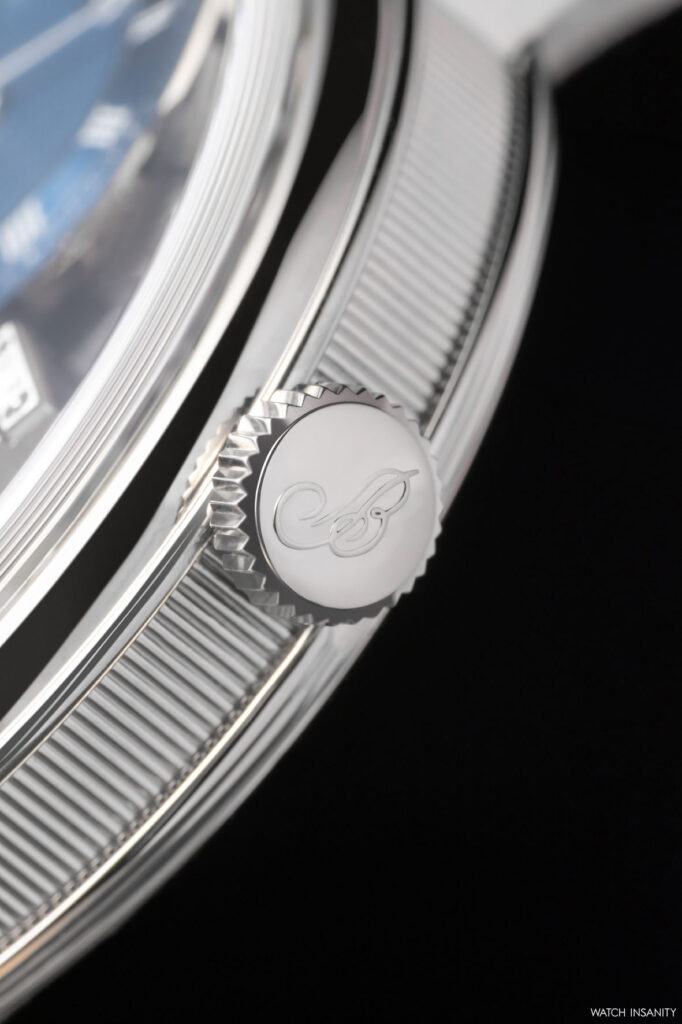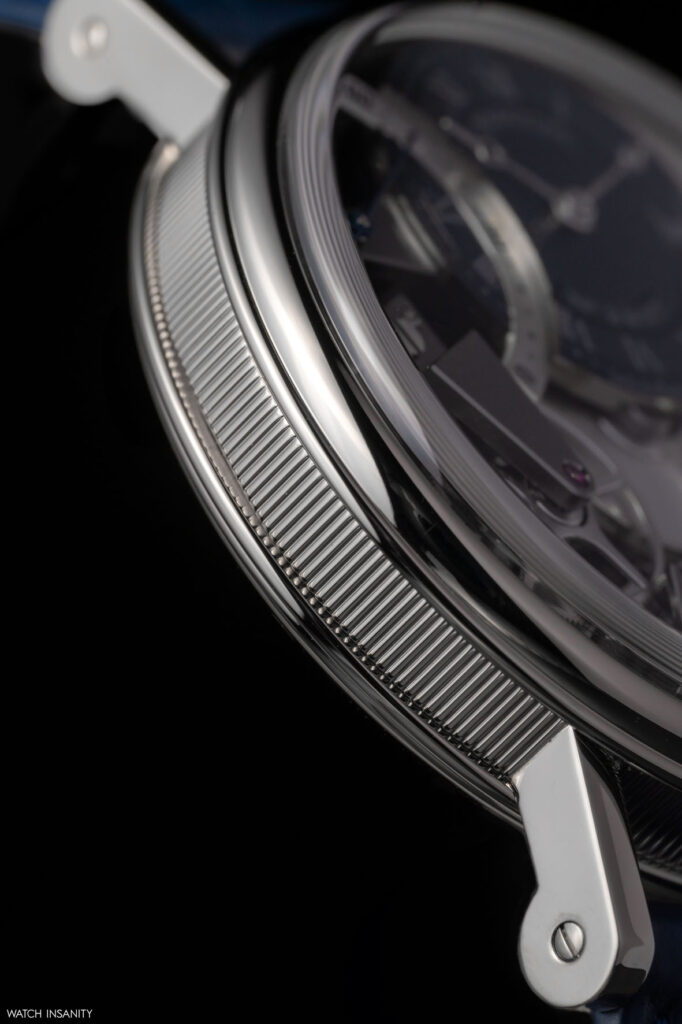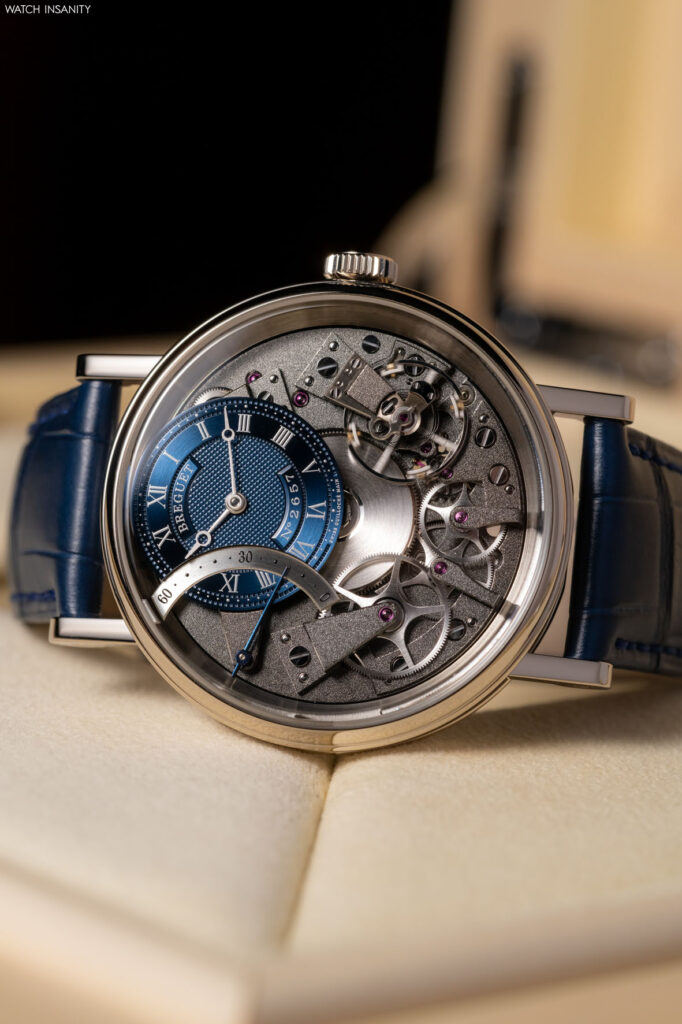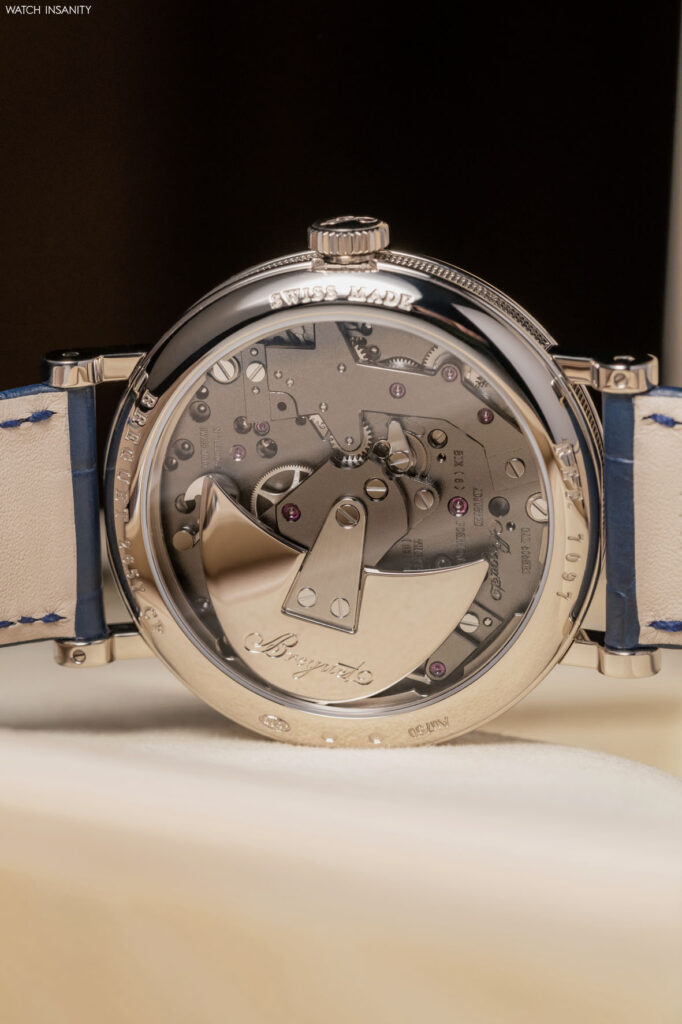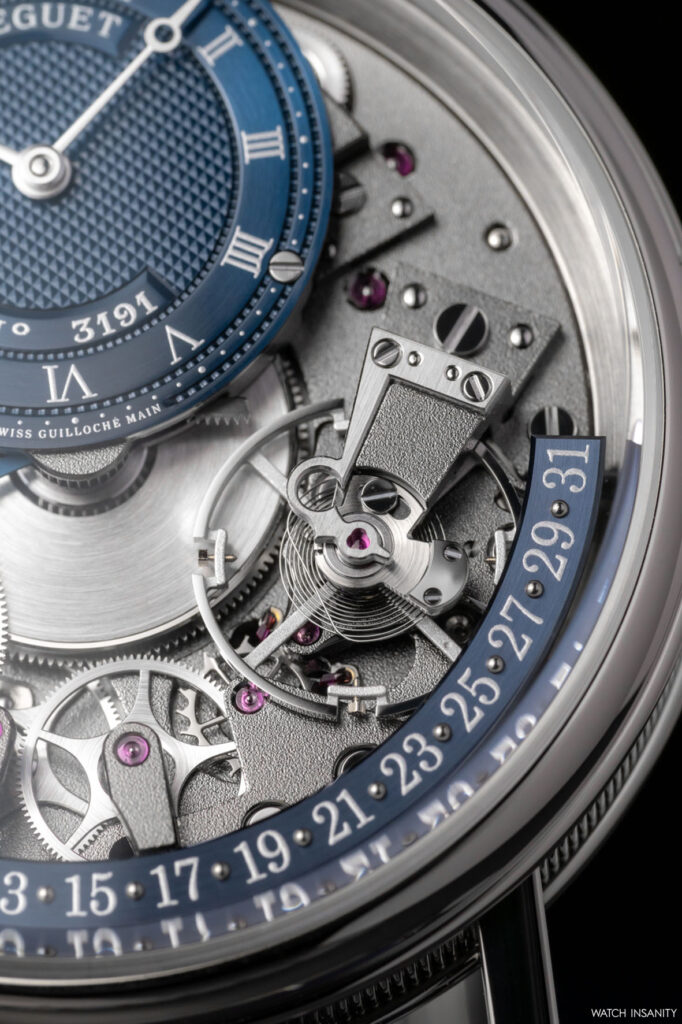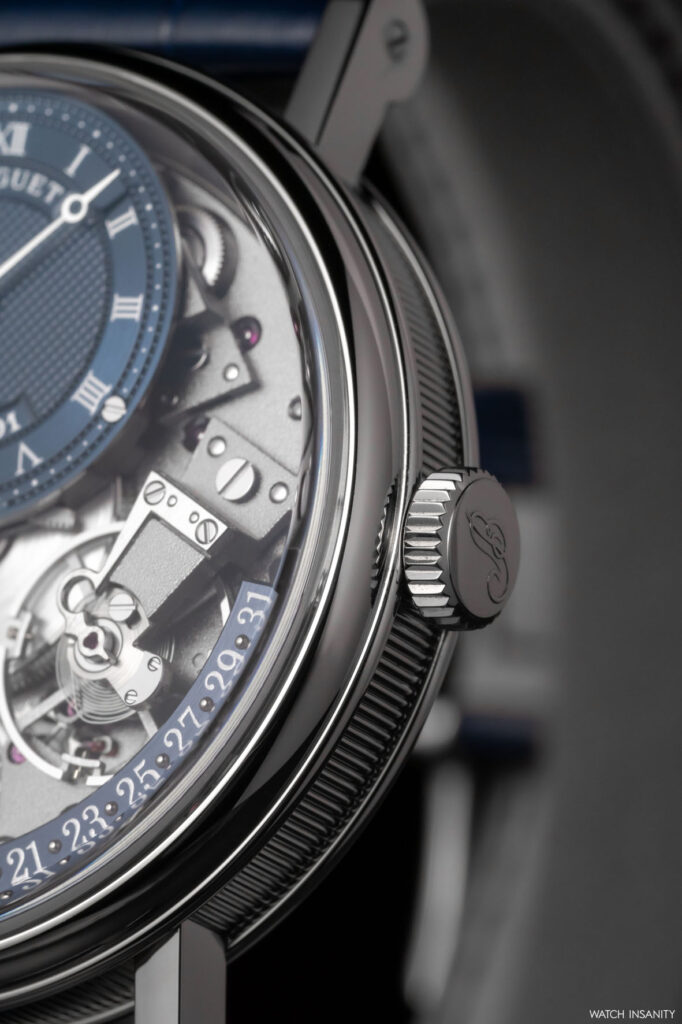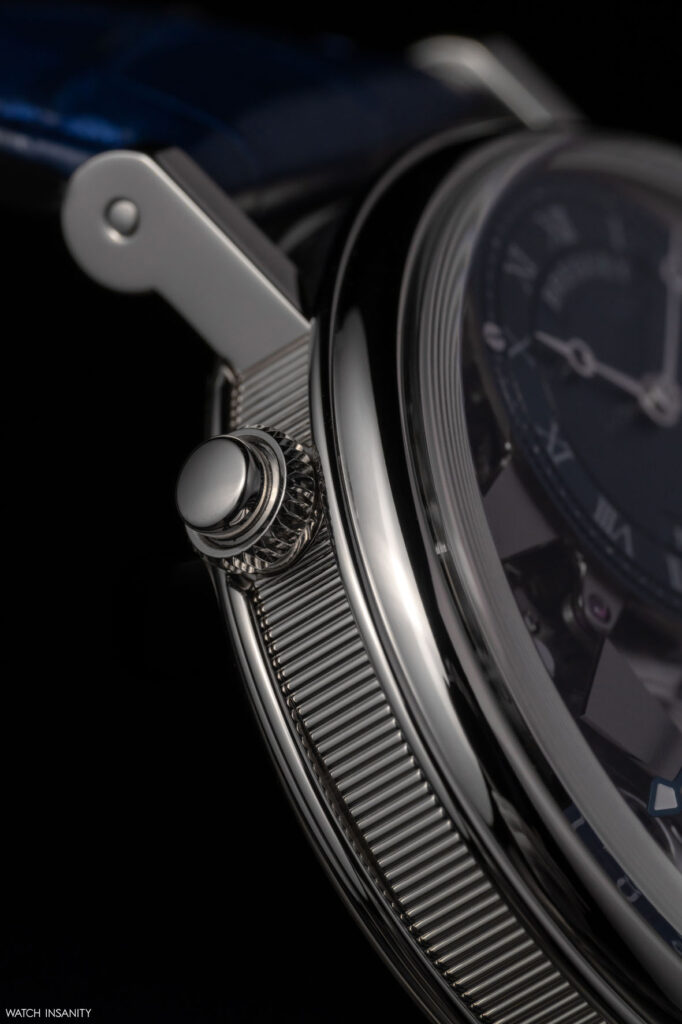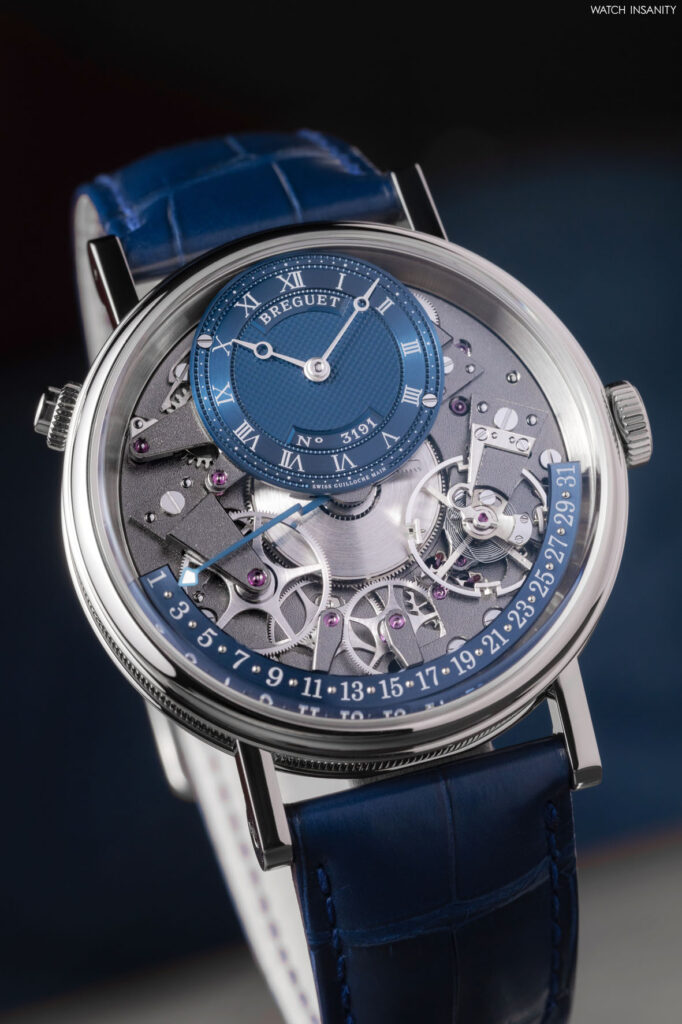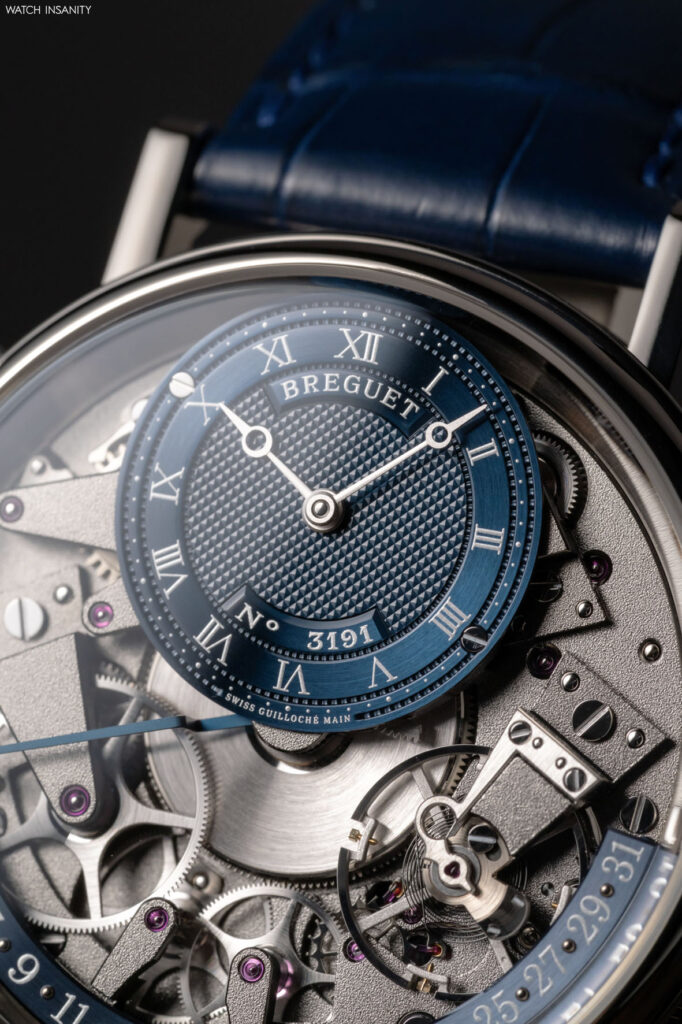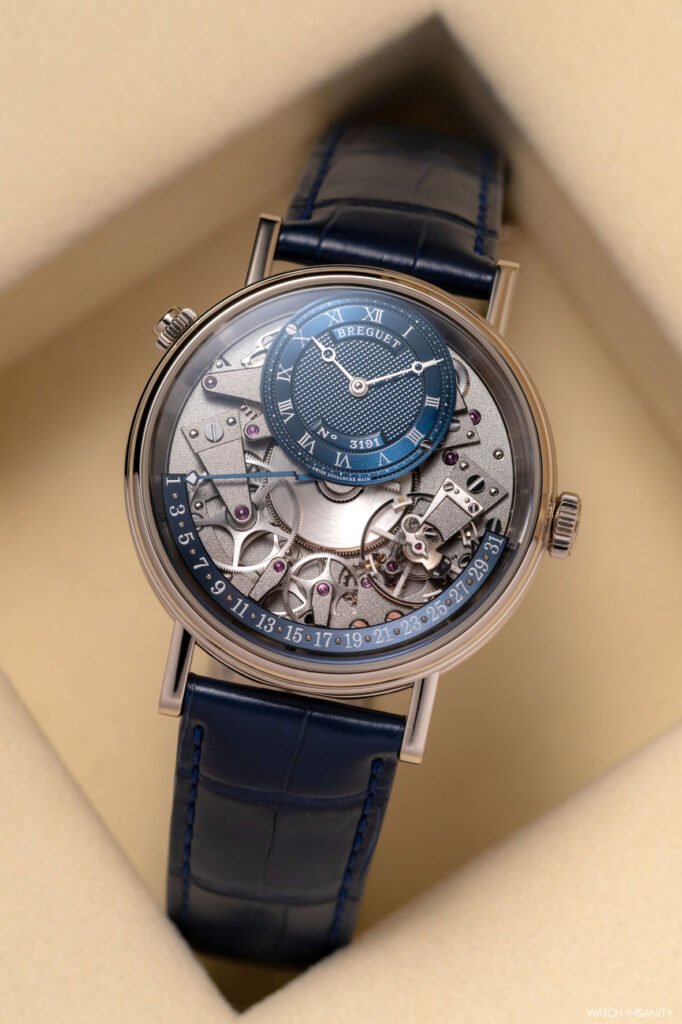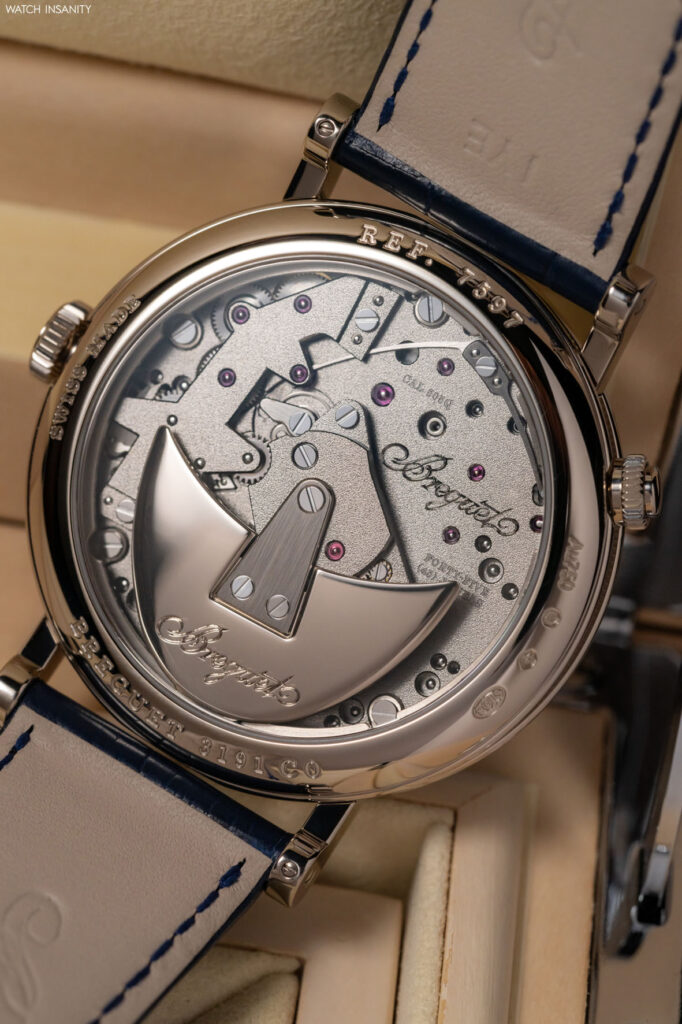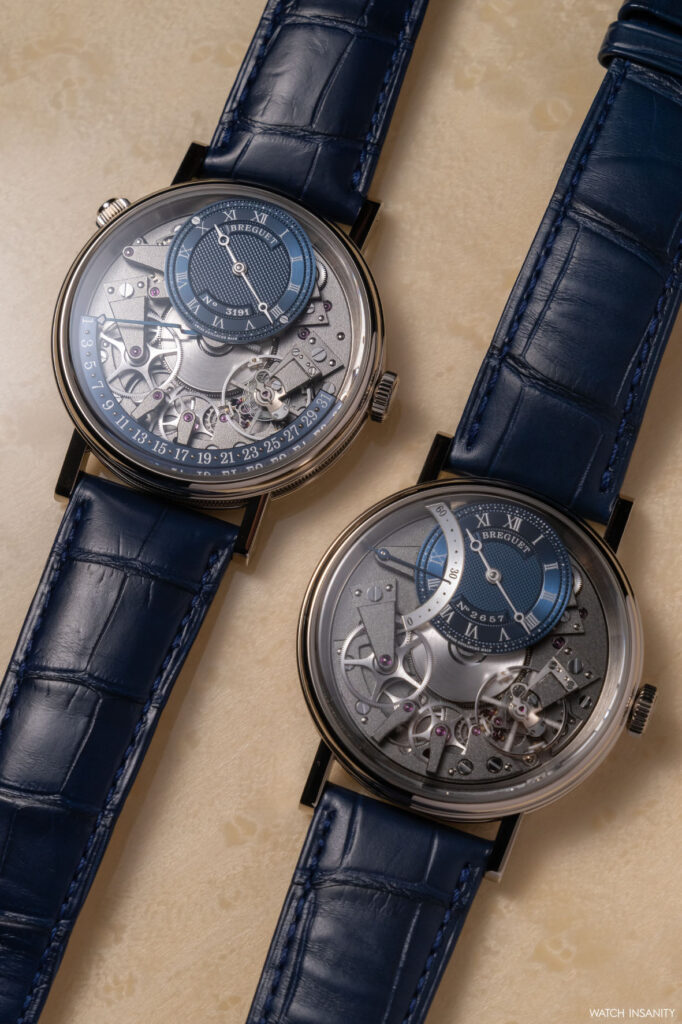Breguet Rétrogrades: two excellences in the Tradition collection
4 December 2023Writing about Breguet watches is never easy. Even if the insights they give are innumerable, even if in their apparent complexity they are astonishingly simple to use, there is always a kind of reverential awe before a Breguet. Let alone if the watches to portray, the protagonists of our shooting, are two: the Tradition Automatique Seconde Rétrograde 7097 and the Tradition Quantième Rétrograde 7597. ‘Rem tene, verba sequentur’, said the Latins, meaning ‘master the subject and the words will follow’. Even knowing the subject, describing timepieces in this category is not a trivial matter. Let us try.
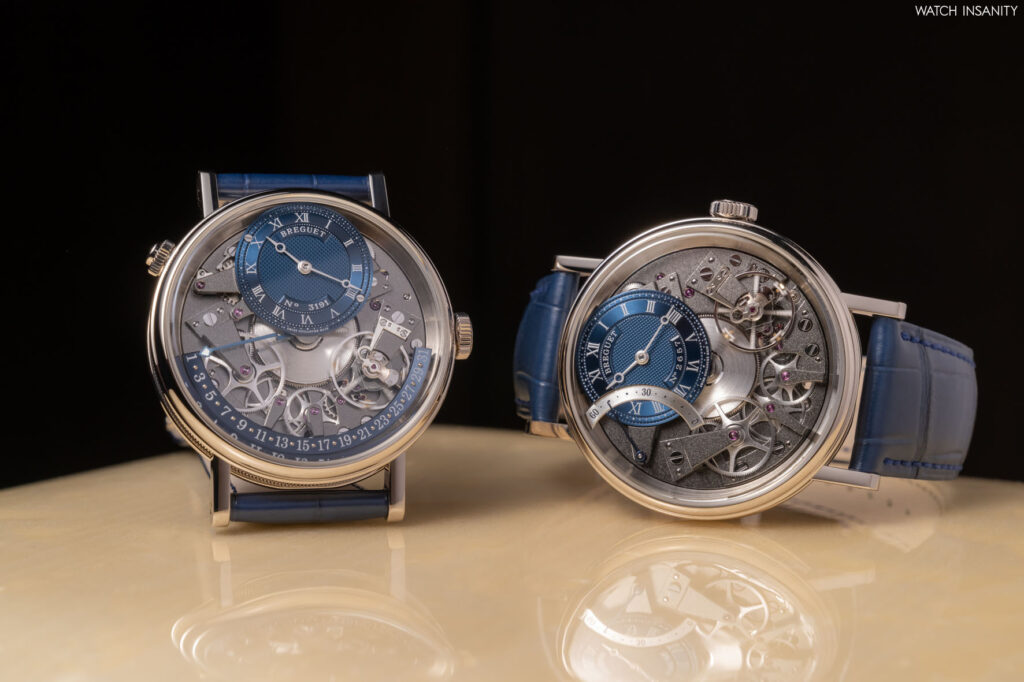
THE TRADITION COLLECTION
Let’s start with the Tradition collection. Launched in 2005, it includes references that pay tribute to Abraham-Louis Breguet’s very first works. It is inspired by the so-called ‘souscription’ watches, i.e. marketed under the subscription system: a quarter of the price is paid when the order is placed, and the balance is paid on delivery.
The modern interpretation of the Tradition uses almost the same movement concept and general approach as its original version. Thus, Breguet has succeeded in creating watches that seem to belong entirely to the 18th century, but combined with its usual innovative spirit. Watches that appear ancient but whose technology is, without a doubt, 21st century.
That said, using the design of a pocket watch for a wristwatch in the Tradition collection was nothing short of revolutionary. Never before the launch of the collection had Breguet employed this type of design to reveal the movement’s mechanism above the main plate so that the wearer could admire it.
TRADITION AUTOMATIQUE SECONDE RÉTROGRADE 7097: THE DIAL
In the case of the Tradition Automatique Seconde Rétrograde 7097, the sight of the mechanism alone is worth the price of the watch, if one may so speak. We have chosen to photograph the reference with the blue dial, a boutique edition, and therefore only available in Breguet boutiques around the world. A version, in our opinion, of unique elegance.
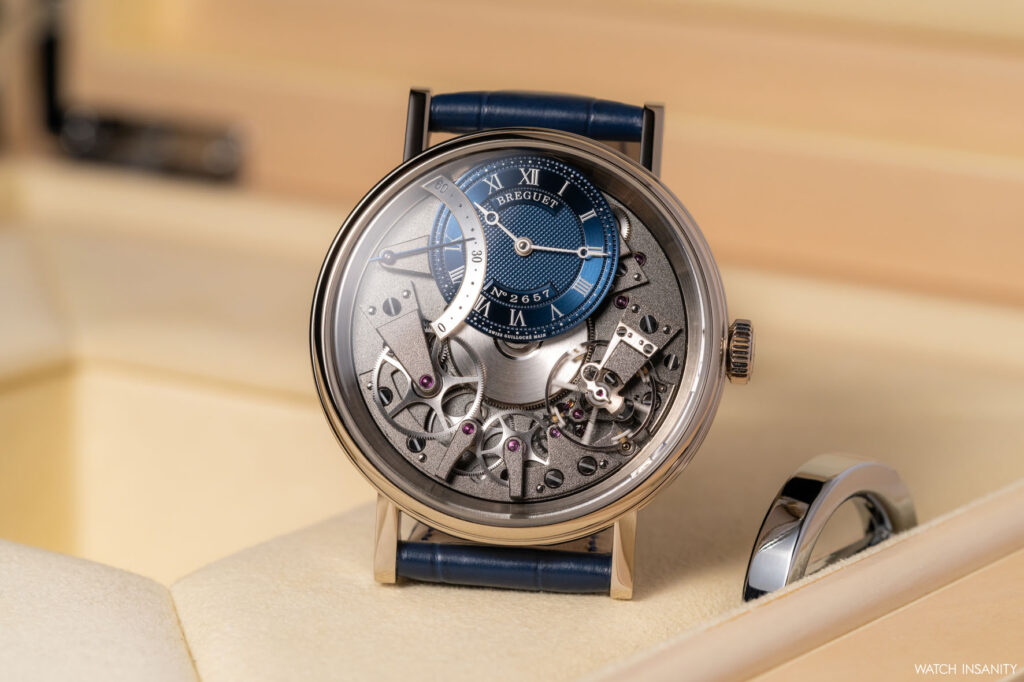
The advantage of having these two pieces together also lies in the fact that their architecture and aesthetics, besides the two different complications, both retrograde (seconds and date), are essentially the same. What we write about the 7097, apart from the complications that vary, also applies to the 7597.
The dial, as we wrote, is an exhibition of mechanics, the stage on which the technical expertise of the maison is displayed. And it is characterised by great balance despite the quantity of functional elements it houses. Among them, what catches the eye is the retrograde seconds arc positioned at 10 o’clock, which gives the watch its name.
It is an approximately 120° arc with a circular brushed finish and the seconds indicated by a blued hand, the colour echoing that of the hour and minute dial above which it is positioned. Fortunately, it does not cover it to such an extent as to obscure the view. Because, in addition to the very elegant blue, the dial is remarkable for the coexistence of three different very high quality finishes in a very small space.
The minute ring housing the contrasting silvered Roman numeral hour markers presents a circular brushed finish; on the outside, two circles engraved with a chemin de fer motif include small spherical hour markers for a more precise reading of the time; finally, the central part has exquisite hand guilloché manufacturewith a clous de Paris motif. The manual workmanship is proudly claimed by the inscription ‘Swiss guilloché main’ at 6 o’clock. Hours and minutes are indicated by classic Breguet rhodium-plated steel pomme évidée hands.
THE BREGUET PARACHUTE
The other element standing out on the dial visually balances the seconds’ arc, because it is located at 4 o’clock. It is Breguet’s famous ‘parachute’, the forerunner of the modern Incabloc system and of all other means used to protect the balance from shocks, and one of Abraham-Louis Breguet’s most famous inventions.
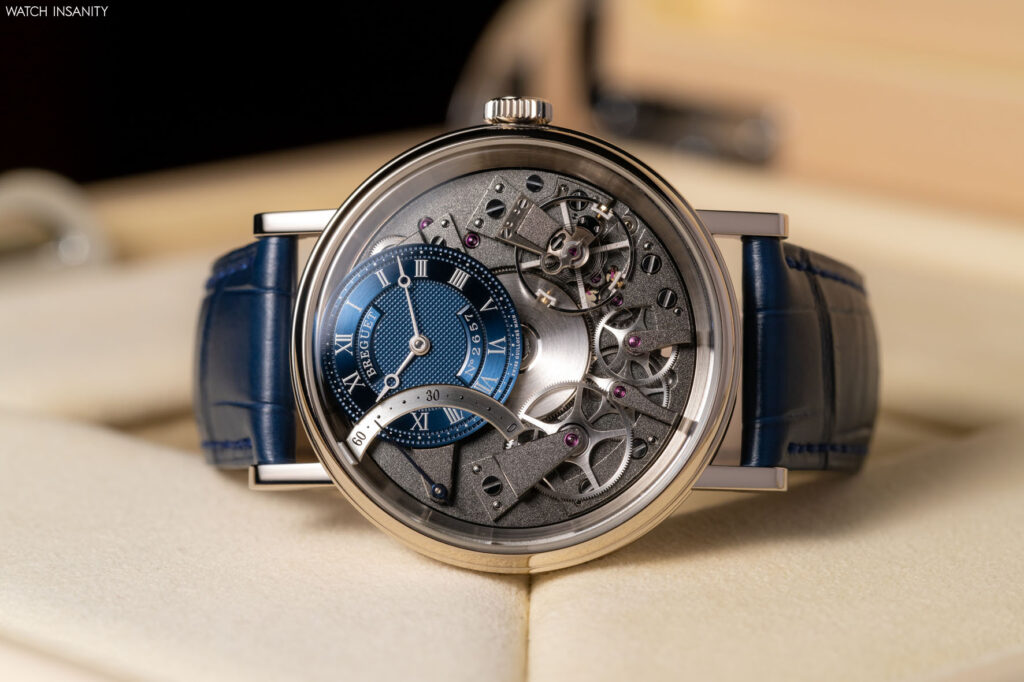
Starting from the observation that, if the watch suffered a blow, the pivots of the balance wheel were the most vulnerable part because they were too thin, the master decided to give them a conical shape and to fix them with small discs of a corresponding shape, mounted on a band spring. Around 1790, Breguet began experimenting with this invention, which would make his watches infinitely less fragile. From 1792 onwards, he equipped his perpétuelles with this system and, within a short time, all his other timepieces as well. He presented the final version of the ‘parachute’ at the 1806 National Exhibition in Paris.
In general, however, this Tradition’s entire dial is impressive and rich in details. In addition to what has already been written, it is worth emphasising the symmetry of the bridges, their subtle grené hand finishing – also found on the main plate – and the bevelled and polished corners of the bridges. All details that recall antique pocket watches, but which together give a surprisingly modern and technically fascinating end result.
THE CASE AND MOVEMENT
The case is made of white gold, measuring 40 mm in diameter by 11.8 mm in thickness, and has the classic ‘coin’ knurled finish on the sides. The bezel is practically non-existent, allowing a full view of the dial and all the movement elements. Characteristic of the Tradition collection are the very elongated lugs, polished like most of the case, which make the watch comfortable on wrists that are not too thin, despite the small diameter.
Inside, the automatic calibre 505 SR1 works at 21,600 vibrations per hour with a power reserve of around 50 hours. It can be adjusted in 6 positions and has an inverted-line anchor escapement with silicon horns; the Breguet balance spring is also made of the same material.
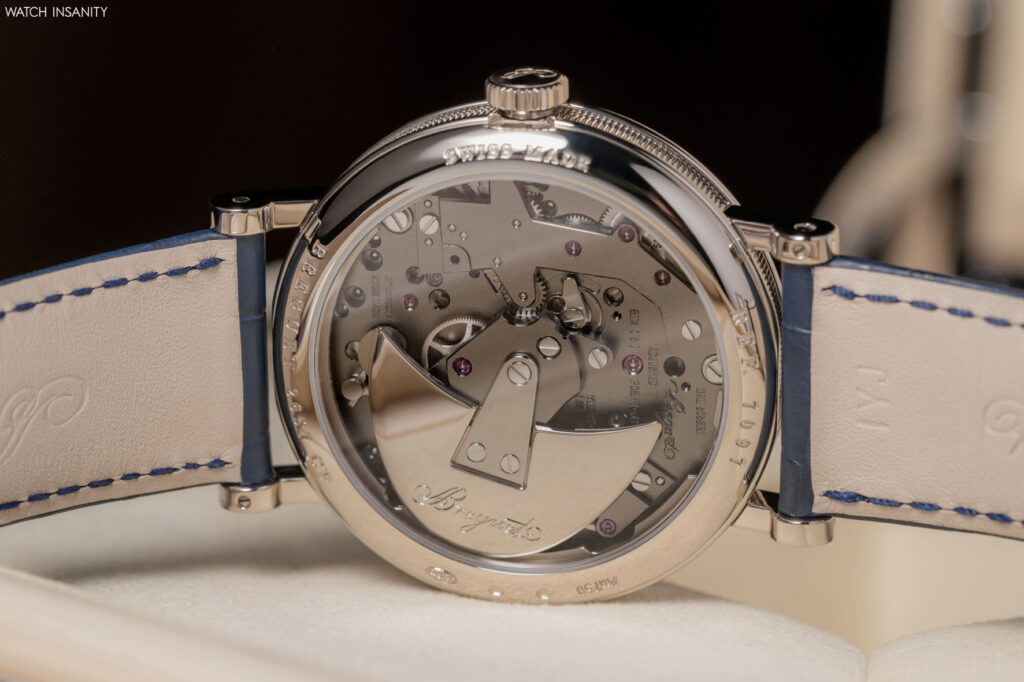
Everything on the dial is in sight, then? Not quite. Because by turning the watch upside down, the sapphire back reveals another outstanding detail. A large rotor on the top of the movement, whose shape is reminiscent of the pendulum of antique watches and which is inspired by the rotor that animated the first pocket watches created by Abraham-Louis Breguet.
Although reminiscent of a pendulum, it does not actually swing but rotates freely through 360° across the gauge. Noteworthy is the finish of the rotor, polished to a high gloss and machined on a curved surface, which is extremely difficult to achieve.
THE BREGUET TRADITION QUANTIÈME RÉTROGRADE 7597
As written above, the basic considerations regarding the case, the finishing, the architecture that Breguet has given to the various parts of the movement placed on the dial, and the workmanship of the hour dial are essentially identical on both the Tradition Automatique Seconde Rétrograde 7097 and the Tradition Quantième Rétrograde 7597. The complication changes, and not only a little, as does its scenic presence.
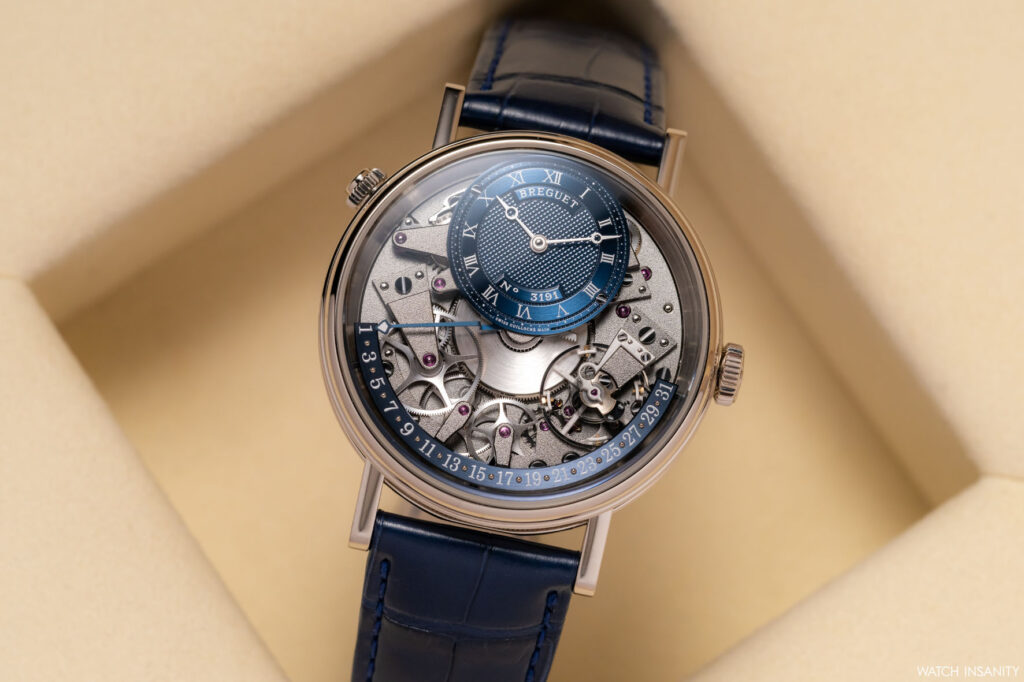
The retrograde date scale, with the indicator returning to the beginning of the month (1) once it reaches the end (31), placed on the dial at 6 o’clock, creates a great balance. It fits perfectly into the profile of the case at the bottom without obstructing the view of the movement. The colour is the same blue as that of the dial, with contrasting silvered hour markers.
Since this type of calendar does not offer the possibility of identifying precisely which month it is indicating, the date hand will always advance to 31 at the end of the month. Manual advance and date adjustment are, however, very easy to perform: the small pusher screwed into the case at 10 o’clock moves the date forward by one day with each press.
The date hand, blued and very long, has a rather conspicuous presence in the overall economy of the watch. The sharp click with which it returns from 31 to 1 is made possible thanks to the energy accumulated day after day – released using a system of levers that ‘disengages’ the hand at midnight on day 31.
THE BEAUTY THAT STOPS SECONDS
The movement always stands at the highest level. Here we have the automatic calibre 505Q, which has the same alternations and power reserve as the 505 SR1 we saw above, as well as the inverted-line anchor escapement with silicon horns and Breguet balance spring also in silicon. The 22-carat gold oscillating weight is also inspired by that of the first pocket watches created by the master in the 18th century.
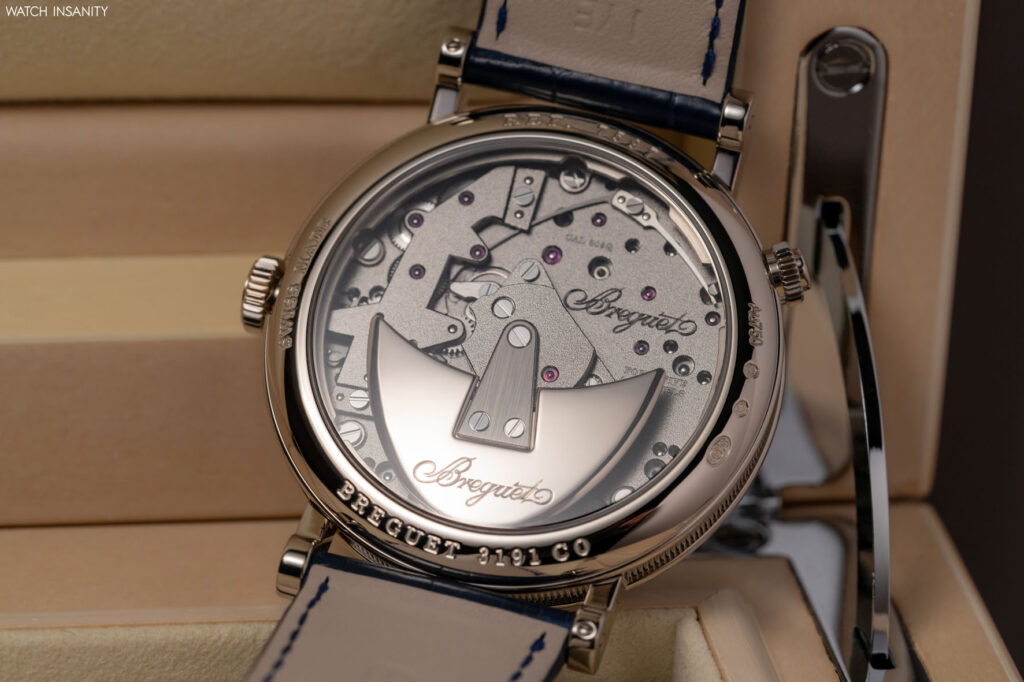
Interestingly, the calibre has a ‘second-hack’ function, i.e. it stops the seconds when the crown is pulled out. Normally, this function stops the seconds to allow the watch to be set to the correct time. However, the Tradition Quantième Rétrograde 7597 has no second hand. So what?
Probably the real reason behind the introduction of this hacking function could be to make the balance wheel stop so that it can also be admired while stationary, not just in motion. An entirely plausible reason, because the balance wheel is indeed beautiful.
Both watches are complemented by blue alligator straps with tone-on-tone stitching and a white gold pin buckle. The Tradition Quantième Rétrograde 7597 costs 44,000 euros, the Tradition Automatique Seconde Rétrograde 7097, 41,000 euros. Aligned with the excellence that characterises this stunning pair.
By Davide Passoni

